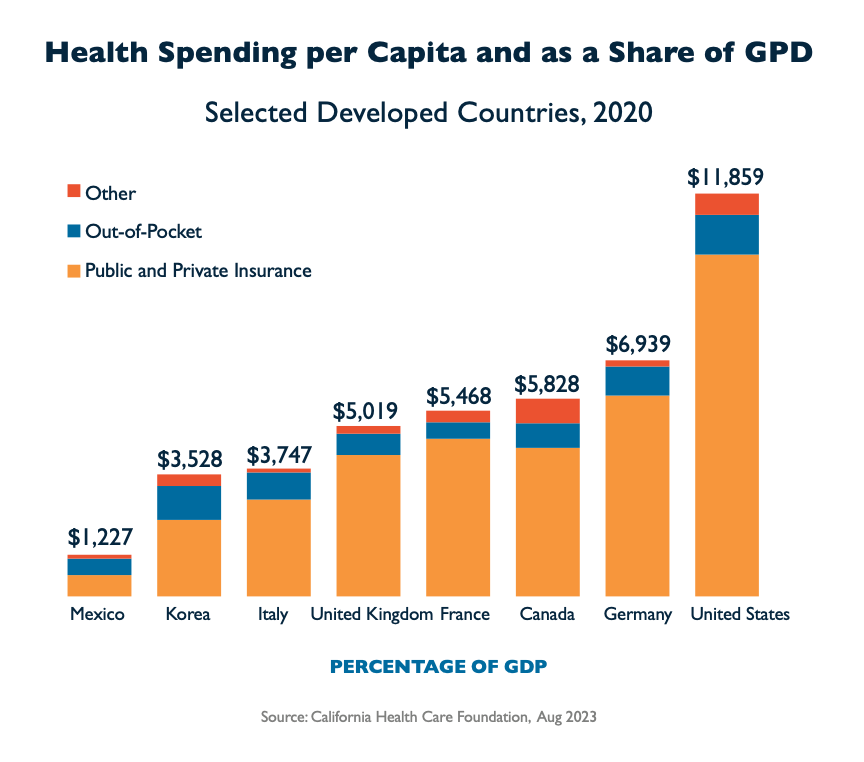Why Independent Medical Practices Are Foundational to Medicine

This is part 1 of a three-part series on the importance of independent specialty practices in America. This part explains why independent medical practices are foundational, part 2 describes the challenges of independence, and part 3 explains why the right partner can make all the difference.
Independent medical practices are necessary for the preservation of the American healthcare system. They help preserve the patient-doctor relationship and provide patients with more choices in care. Unfortunately, today's market is pushing toward consolidation with the promise of increased efficiency and cost savings. The reality is that consolidation is having drastic negative impacts on patients, providers, employers, and healthcare as a whole.
Despite pessimistic views, there is still hope for independent specialty medical practices. Beyond hope, there is a foundational need for these practices to continue functioning to support the American healthcare system.
Independent Medical Practices are Need for Healthcare as a Whole
Consolidation is often touted as a benefit to the community that generates efficiencies and improves care coordination — but is this true? And these “efficiencies” are purchased at what cost?
Consolidation results in higher healthcare prices, ultimately driven by increased market power and decreased competition. Favorable antitrust laws give large health systems much more power at the negotiating table over providers and payers. These consolidated systems manipulate for self-favorable rates that support their executive-compensation-driven profit targets while driving up overall healthcare costs. Despite increased prices and spending, the US is experiencing little improvement in quality of care.

The US spends more money on healthcare per capita than any other developed country — nearly 20% of the GDP. Yet the US health system ranks last among eleven high-income nations, with affordability of care as a primary problem. While consolidation is often justified by its theoretical efficiencies, in the real world, consolidated healthcare costs more, has worse patient outcomes, and exhausts staff. Burnout has significantly increased since the pandemic — and shows no signs of slowing. The healthcare industry lost a shocking number of workers in 2021 and 2022, with nearly 47% saying they plan to leave their jobs by 2025. Clinician turnover continues to be a huge problem for an already overwhelmed healthcare system.
The US could see a shortage of 37,800 to 124,000 physicians by 2034, driven mainly by burnout caused by profit-seeking healthcare systems.
Independent Medical Practices are Needed for Patients Who Deserve Better Care
Patients share the brunt of consolidation with physicians, first, in the form of increased deductibles and out-of-pocket costs resulting from payers needing to cover the higher prices negotiated by health systems and larger provider groups with more volume.
Research from Harvard found that physician services delivered within health systems cost 12% to 26% more than independent practices, and system-based hospital services cost 31% more on average than care provided by independent hospitals.
Second, in terms of actual quality of care. Consolidation coerces patient care into healthcare monopolies — very often without their knowledge. This closed care loop keeps referrals in a single system whose corporate goals are focused on profits over patient well-being. Limiting care access has disproportionally impacted geographically and financially vulnerable populations. As of 2018, 95% of metropolitan areas in the US had highly concentrated hospital markets — and based on market trends, it’s likely this number has increased. For example, in California hospital markets, specialists, insurers, and primary care providers are approaching monopoly levels of concentration — especially in rural areas, according to the Herfindahl-Hirschman Index (HHI). Access to independent physicians in these areas is significantly lower, and therefore, care quality is diminished for patients who have decreased access and choice.
One study found that physician-owned practices had significantly fewer preventable readmissions than hospital-owned practices, likely due to better patient access to physicians and closer staff connections seen in private practices.
On the flip side, independent specialty practices provide choices for patients and increase access to care, often at significantly lower costs to the patients themselves. Patients can reap the benefits of better doctor-patient relationships by working with doctors who are focused on providing high-quality care over hitting corporate numbers.
Consolidated hospitals charge nearly 60% more for procedures than ambulatory surgery centers and doctors’ offices.
Independent Medical Practices are Needed for Doctors Who Put Medicine First
Physicians also bear the brunt of consolidation. Doctors who work within the restraints of PE and health systems are forced to see more patients at a brisker pace. Then, after being forced into exclusive hospital-based PE contracts, they are forced to negotiate a less-than-favorable per-case rate. In contrast, doctors in independent specialty practices enjoy significantly more autonomy, resulting in higher rates of job satisfaction and lower rates of burnout — and overall more happiness. Independent physicians list autonomy as the factor they enjoy most about being self-employed. The control they have to practice medicine the way they want increases career satisfaction and counteracts workplace fatigue. It’s clear that feeling like more than just “a cog in the machine” has significant benefits.
60% of doctors who went from being self-employed to working as employees claimed to be unsatisfied with that decision.
 Practicing medicine without corporate pressures also restores the doctor-patient relationship (which further eases work-related stress that leads to burnout). Doctors have noted that making decisions based on the best options for a patient — rather than pressures from their higher-up’s financially driven (and sometimes clinically insignificant) metrics — is a massive benefit of independence that makes their jobs more rewarding. They can be more engaged with patients and give them more time than those locked into an efficiency-driven schedule. They are also not limited to the specialists and facilities of a single consolidated system when referring their patients to expert care.
Practicing medicine without corporate pressures also restores the doctor-patient relationship (which further eases work-related stress that leads to burnout). Doctors have noted that making decisions based on the best options for a patient — rather than pressures from their higher-up’s financially driven (and sometimes clinically insignificant) metrics — is a massive benefit of independence that makes their jobs more rewarding. They can be more engaged with patients and give them more time than those locked into an efficiency-driven schedule. They are also not limited to the specialists and facilities of a single consolidated system when referring their patients to expert care.
And, of course, self-employed physicians can make more money.
Self-employed physicians can earn upwards of $150-175k more per year compared to their employed peers.
Independent Medical Practices are Needed for Employers Facing Rising Costs
Just like their employees, employers must grapple with the increased healthcare costs that go hand-in-hand with consolidation. Whether self-insured or fully insured, businesses must pay for increased healthcare costs via higher premiums or direct costs. Of course, all of the increases impact the entire cost-of-living ecosystem, as employees continue to request higher salaries to keep up with basic needs, including healthcare costs not covered by insurance.
For the 158 million Americans with employment-based coverage, hospital prices are an average of 8.3% higher in the highly consolidated markets that cover half the country.
Can We Save American Healthcare?
It may feel like the healthcare industry is pitted against independent specialty practices. Private equity is poised to provide the necessary capital to invest in new technologies and support economies of scale. In addition, legislation continues to favor large groups, and consolidation is presented as a magic solution that will fix everything.
It won’t. This corporatized system will only continue to drive money into the pockets of large healthcare monopolies. It will continue to push essential healthcare clinicians out of the workforce with profit-driven metrics that increase burnout, eliminate patients’ freedom of choice in their care, and drive up costs exponentially with payers trying to keep up.
The only solution is to protect the practice of independent medicine.



.png?width=500&height=380&name=Banner%20Providers%20(1).png)
.png?width=500&height=380&name=Banner%20Providers%20(2).png)
.png?width=500&height=380&name=Banner%20Providers%20(4).png)